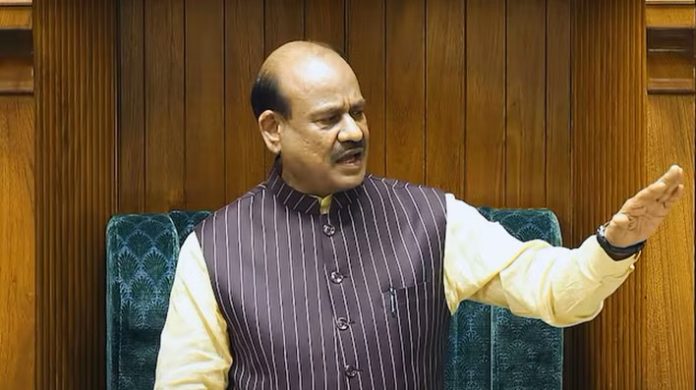7 July 2024: Om Birla, the Speaker of the Lok Sabha, recently sparked significant controversy by reading out a resolution condemning the Emergency imposed by Prime Minister Indira Gandhi in 1975. This resolution has reopened debates on a pivotal period in Indian history and its implications for contemporary politics.
The backdrop of the Emergency lies in the escalating political unrest during the early 1970s, culminating in the Sampoorna Kranti (Total Revolution) Movement led by Jaya Prakash Narayan (JP). What began as student protests against rising costs in Gujarat soon evolved into a nationwide call for political reform and accountability. JP’s rallying cry to encircle assemblies and parliament challenged the authority of Mrs. Gandhi’s government, ultimately prompting her to declare a state of Emergency on 25th June 1975.
During the Emergency, fundamental rights were suspended, press freedoms were severely curtailed, and political dissent was suppressed through widespread arrests and censorship. The period saw a significant centralization of power and marked a critical juncture in India’s democratic history. Mrs. Gandhi’s government faced criticism both domestically and internationally for its authoritarian measures.
Reflecting on these events, Ram Puniyani, a noted commentator, has highlighted the treatment of Opposition leaders and the complex alliances that emerged during the Emergency. Figures like Jaya Prakash Narayan, a respected leader of the freedom movement, formed unexpected alliances with organizations like the Rashtriya Swayamsevak Sangh (RSS), seeking broader support against what they perceived as a threat to democratic principles.
The resolution read by Om Birla, which condemns the Emergency, is seen by many as a symbolic gesture reaffirming democratic values and commemorating those who fought against authoritarianism during that period. However, its presentation has also raised questions about historical accuracy and political appropriation. Critics argue that while it is crucial to remember and learn from the mistakes of the past, such resolutions should not be used selectively for political gain.
Parallelly, contemporary India has witnessed debates over the state of democracy and civil liberties. Critics, including figures like Nayantara Sahgal and Lal Krishna Advani, have raised concerns about what they describe as an “undeclared emergency” in recent years. Issues such as curtailment of freedom of expression, attacks on dissenting voices, and the influence of non-state actors have fueled these concerns.
The controversy surrounding Om Birla’s resolution underscores broader tensions within Indian society regarding historical memory and political narratives. While the BJP portrays itself as a custodian of democratic values and a challenger to authoritarianism, critics argue that its interpretation of historical events may oversimplify complex realities.
As India navigates its democratic path, discussions around the Emergency serve as a critical reminder of the fragility of democratic institutions and the importance of safeguarding constitutional principles. The legacy of the Emergency continues to shape political discourse and public opinion, reflecting ongoing debates about governance, accountability, and the balance of power in a diverse and complex democracy like India.




